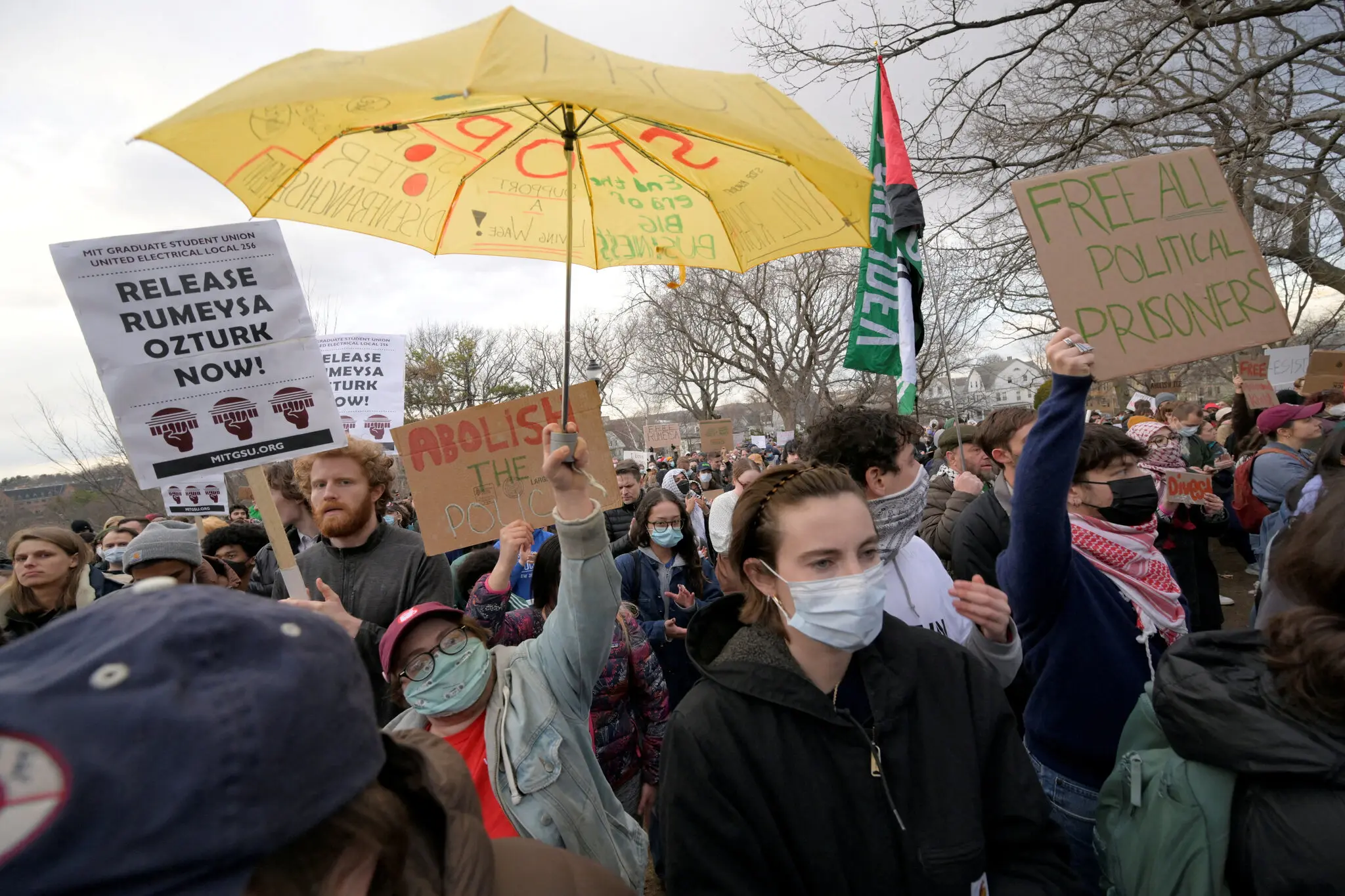March 28 – The Trump administration has moved to deport pro-Palestinian students and academics who are legally residing in the United States, citing concerns over national security. This development comes amid growing tensions between the administration and elite universities, which it accuses of failing to adequately address antisemitism on their campuses.
In recent months, student protests in support of Palestine have gained momentum across several prestigious American universities. These demonstrations, organized in response to the ongoing conflict in Gaza and the broader Israeli-Palestinian conflict, have sparked heated debates on free speech, academic freedom, and the limits of protest. However, the administration’s push to remove foreign students involved in these protests has raised alarm among civil rights advocates and legal experts.
Deportations Citing National Security Concerns
Officials within the Trump administration have argued that the deportation efforts are necessary to safeguard national security. They claim that some of the student activists have expressed views that could be interpreted as supporting terrorism or violence, though no concrete evidence has been publicly presented to substantiate these claims.
According to government sources, the Department of Homeland Security (DHS) has been tasked with identifying and removing foreign students who have participated in pro-Palestinian demonstrations. The administration has reportedly instructed immigration authorities to closely monitor student visa holders and initiate deportation proceedings against those deemed to be engaging in “anti-American” activities.
Legal and Constitutional Concerns
Critics argue that the administration’s actions violate fundamental protections guaranteed under the U.S. Constitution, particularly the First Amendment, which protects free speech and peaceful assembly. Legal experts have emphasized that expressing political opinions, even if controversial, is a protected right for all individuals in the United States, regardless of their immigration status.
“Deporting students simply for expressing their views on a contentious international issue is a clear violation of free speech rights,” said a prominent civil liberties attorney. “These actions set a dangerous precedent where the government can punish individuals for their political beliefs.”
Moreover, legal scholars have pointed out that the Supreme Court has long upheld the principle that non-citizens in the United States are entitled to certain constitutional protections, including freedom of speech. The administration’s attempt to link political expression with national security concerns is being viewed by many as an attempt to suppress dissent and intimidate those advocating for Palestinian rights.
Growing Tensions Between the Administration and Universities
The Trump administration’s stance has heightened tensions with elite academic institutions, which have been vocal in their defense of free speech and the rights of their students. Several university leaders have condemned the deportation efforts, emphasizing that campuses should remain spaces where diverse opinions can be expressed without fear of government retaliation.
“We stand by our students and faculty members who are exercising their constitutional right to express their views,” said a spokesperson for one Ivy League university. “Universities have a responsibility to foster dialogue and understanding, not silence voices through fear and intimidation.”
However, administration officials have accused these institutions of failing to adequately address antisemitism on campus, arguing that some pro-Palestinian protests have crossed the line into hate speech and harassment. The administration maintains that its actions are aimed at preventing the spread of extremist ideologies that could pose a threat to national security.
Student and Faculty Reactions
Student groups and faculty members have strongly criticized the administration’s actions, viewing them as an attack on academic freedom and political dissent. Several student organizations have launched petitions, organized rallies, and called for greater protection of immigrant and international students who are at risk of deportation.
“We will not be silenced,” said a spokesperson for one prominent student advocacy group. “Our fight for Palestinian rights is grounded in principles of justice and equality. Deporting students for standing up for these values is both unjust and unconstitutional.”
Faculty members have echoed these concerns, warning that the administration’s approach could undermine the open exchange of ideas that is central to the mission of higher education. “Academic institutions must not become battlegrounds where political dissent is punished,” said a professor of constitutional law. “Such actions threaten the very foundation of democracy.”
Potential Legal Challenges and Future Implications
Legal challenges to the administration’s deportation efforts are likely, with civil rights groups preparing to contest the actions in court. Advocates argue that deporting students for their political beliefs not only violates constitutional principles but also sets a dangerous precedent for future administrations.
If allowed to proceed, these deportations could create a chilling effect, discouraging international students and academics from engaging in political discourse or expressing dissenting views. This, critics warn, would have long-term consequences for academic freedom and the diversity of thought that defines American higher education.
A Divisive Battle Ahead
As the controversy unfolds, the Trump administration’s efforts to deport pro-Palestinian student protesters are likely to spark further debate on the balance between national security and free speech. With legal challenges looming and opposition mounting from universities and advocacy groups, the outcome of this battle could have far-reaching implications for the rights of non-citizens and the future of free expression in the United States.



0 Comments